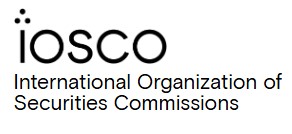BBC warn of big increase in online scams

Banks have warned of a large increase in fraud in 2022, with much of this originating online.
Barclays told the BBC that 77% of scams are now happening on social media, online marketplaces and dating apps.
TSB said a large increase in cases of impersonation, investment and purchase fraud were the main drivers of this.
It found impersonation scams on WhatsApp had tripled in a year, while fake listings on Facebook Marketplace had doubled.
And it said there have been "huge fraud spikes" on platforms owned by Meta, such as WhatsApp and Facebook.
A spokesperson for Meta told the BBC it believes fraud is "an industry-wide issue".
"Scammers are using increasingly sophisticated methods to defraud people in a range of ways, including email, SMS and offline," they said.
"We don't want anyone to fall victim to these criminals, which is why our platforms have systems to block scams, financial services advertisers now have to be FCA (Financial Conduct Authority)-authorised and we run consumer awareness campaigns on how to spot fraudulent behaviour."
'Epidemic of scams'
Liz Ziegler, Lloyds Banking Group's fraud prevention director, told the BBC banks are facing an "epidemic of scams".
"With more than 70% of fraud starting with contact through the main tech platforms, these companies must be held responsible for stopping scams at source and putting things right for innocent victims," she said.
Previously, NatWest chief executive Alison Rose told a Treasury Select Committee that three million people in the UK were victims of fraud in 2022.
"We have seen an 87% increase in fraud," she said, adding that NatWest estimated 60% of frauds originated on social media and technology platforms.
Meanwhile, TSB said 60% of purchase fraud cases of which it is aware - where a scammer sells an item they never intend to send to the buyer - happen on Facebook Marketplace, and two-thirds of impersonation fraud cases it sees are happening on WhatsApp,
The bank says it issued 2,650 refunds covering these cases last year.
Paul Davis, TSB's director of fraud prevention, said he believed social media companies "must urgently clean up their platforms" to protect consumers.
"It's high time that social media and telephone companies took financial liability for the rising levels of fraud taking place on their platforms," he said.
